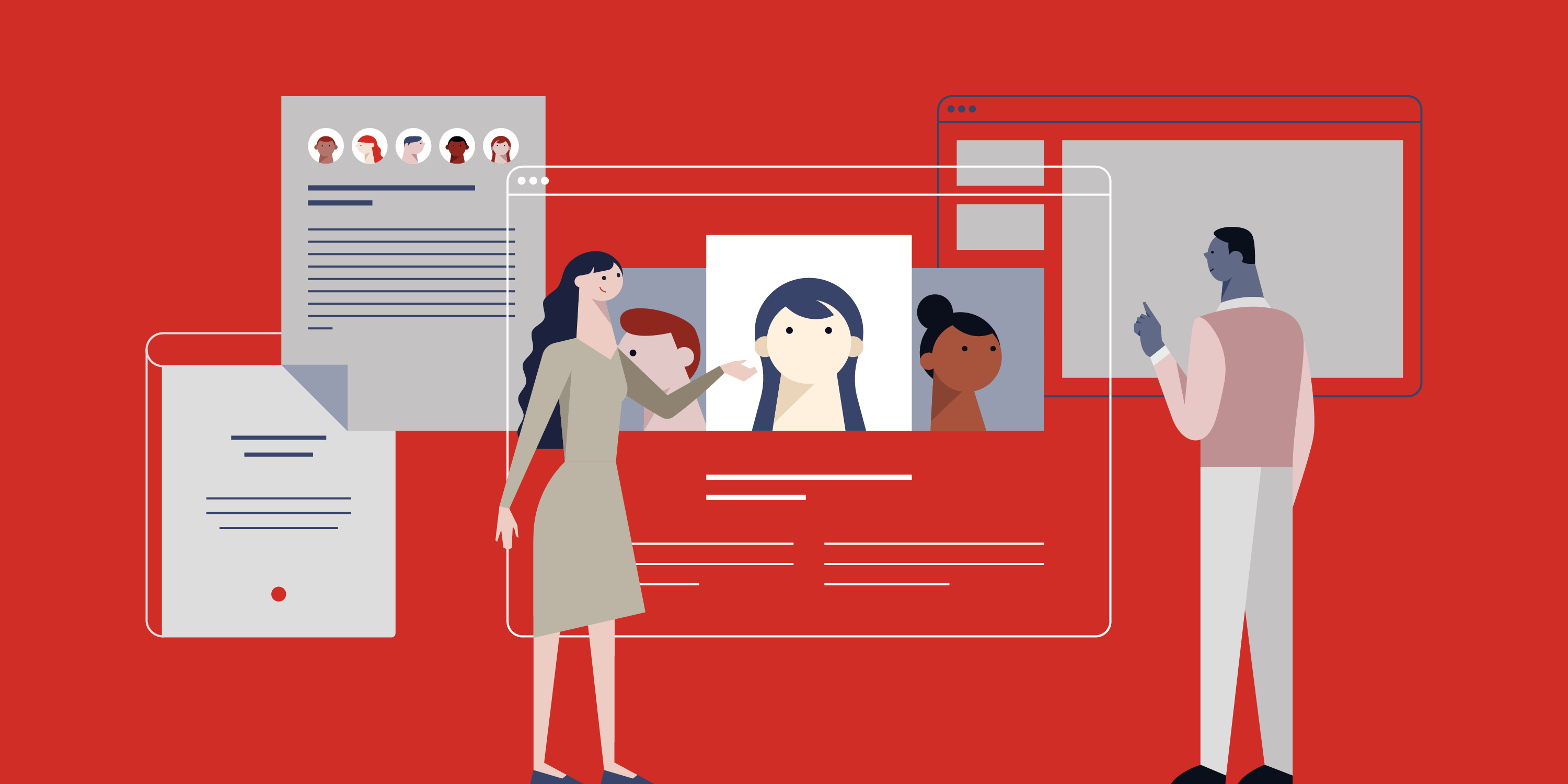Understanding COVID-19 & The Recruitment Challenges That Come With It

Danny Aldridge is Founder of Space Recruitment and Co-founder of Check-a-Salary, a salary and job-board aggregation site.
The global outbreak of COVID-19 has increased the difficulty of vetting talent, shifted recruitment to being even more online, and has impacted the process of making job offers.
Recruitment has changed significantly with the worldwide pandemic of covid-19. The coronavirus will reveal talent gaps (and then close once the pandemic is over) and have longer-term effects on the recruitment industry. In this post, we’ll analyze those trends and challenges.
What’s Driving COVID-19 & Recruitment Challenges?
COVID-19 is impacting the operation of every industry in the world through several different ways:
- Social distancing is keeping people apart and changing working habits
- Enforced isolation and sickness is sidelining large sections of every workforce
- School closures are placing significant restrictions on workers with children
- Specific industries are facing surging demands, such as grocery stores, medical care providers and delivery services
- While sectors such as catering, outdoor events, and entertainment have been forced to close for the foreseeable future
The impact this has on the recruitment industry is only just being seen, and causes a number of unprecedented trends and constraints:
- A large number of individuals are now out of work at the same time
- Those workers have little or no ability to relocate for work
- The industries looking to recruit in large quantities often do not align with their track record or experience
- An increasing number of people are opting to take part in short term volunteer efforts to support health services
The above factors and trends result in a markedly altered recruitment industry compared to that which existed not long ago. Businesses that are still recruiting are finding that something as simple as vetting is now more challenging than ever.
Why Has Vetting Candidates Become More Challenging?
Vetting candidates requires the quick and timely input of past employers, many of whom are now harder to contact or unavailable entirely.
It’s also the case that for industries where trial shifts or internal assessments would be used as part of the vetting process, that can no longer be done.
The issue is that the skills of a given candidate still need to be assessed just as rigorously. Clearly, the traditional model breaks down in these unprecedented times. That is why recruitment is shifting faster than ever before.

How Is Recruitment Shifting During The Coronavirus?
You only have to look at the significant disruption occurring in the jobs market as a result of industry closures and lockdowns to see how it impacts the workforce and recruiters:
- Freelance websites have long been popular destinations for the self-employed looking to create solo businesses. They are now increasingly becoming hiring destinations for companies looking to ensure maximum flexibility when faced with increasingly lean budgets
- Remote working is becoming increasingly common, which forces any new roles created to move online from day one
- For the same reasons, interviewing and internal assessments now have to conducted almost exclusively via video calls
More than that, no list of COVID-19-related recruitment challenges would be complete without mention of the dramatic realignment of the workforce. A significant portion of the workforce will be/is being forced to take time off due to restrictions. And that’s without going into detail about illness and increased childcare loads.
That can then combine to create a two-tier job market in which some can develop new skills through work, and others are not.
What Does the Talent Gap Mean?
Talent gaps can occur for a number of different reasons, here’s what you need to know:
- Socioeconomic barriers to entry that hold back greater proportions of certain demographics
- Highly localized niche industries that only attract those willing and able to relocate
- Technically demanding fields that require a higher degree of analytical ability to enter
The issue is that the COVID-19 pandemic, and the constraints it’s placing on the workforce, could accelerate the growth of skills and talent gaps. That means that while some individuals will see their careers grow and progress, others will be held back by a combination of their personal circumstances, industry, and the area in which they live.
Traditionally gaps tend to require a degree of social engineering and legislation to bridge them, but this may not be the case with COVID-19.
What Can Recruiters Expect Once the Pandemic is Over?
As with any major upheaval and change, there will inevitably be a period of realignment and transition. Where the pandemic is different is that once it abates and life begins to return to normal, we can expect some form of reset:
- Existing industries will reopen, but it remains to be seen how they will perform in the short to medium term
- Businesses may well opt for increasing degrees of short term and flexible hires as the economy rebuilds
- Individuals will likely have less freedom to move and relocate for work, particularly those working in industries that closed down and those living in areas most hard hit by COVID-19
For these reasons, we can expect the recruitment across all sectors to require a more flexible and adaptable approach to hiring.
Conclusion: Longer-Term Recruiting Trends To Consider
Because of the enormous shift in working habits during the pandemic, we can expect longer-term trends in which the fortunes of various industries rise and fall. The retail and delivery sectors would be prime examples of those undergoing a degree of forced contraction.
There could also be increased pressure from employees and candidates to look for corporate and office-based jobs that allow for remote working. That means there are chances for forward-thinking businesses to acquire talent from right across the nation, and beyond, by adapting the way they work and interact.
Now it’s time to assess what it means for your business. Is it an opportunity or a challenge? By taking a proactive approach to how you engage with the new recruitment industry, you can stay ahead of the curve. That applies whether you’re a recruiter, candidate, or employer.

Danny Aldridge is Founder of Space Recruitment and Co-founder of Check-a-Salary, a salary and job-board aggregation site.






